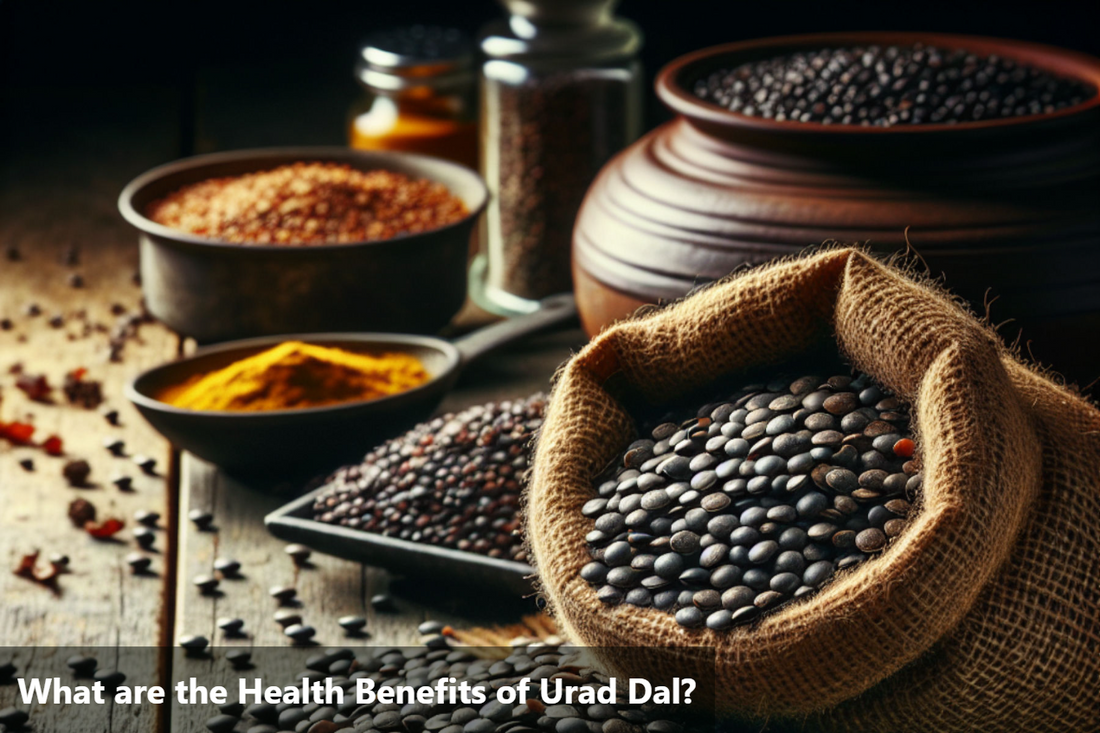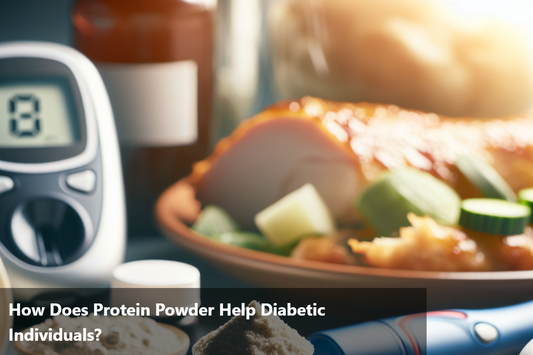Urad dal, also known as black gram or black lentil, is a popular legume widely used in Indian cuisine. This humble ingredient holds significant importance due to its versatile nature, distinct flavor, and numerous health benefits.
Rich in proteins, fibers, vitamins, and minerals, urad dal serves as a valuable addition to a balanced diet. Its high protein content aids in muscle repair and growth, making it an excellent choice for vegetarians and vegans. Additionally, the fiber in urad dal promotes healthy digestion and helps in maintaining a feeling of fullness, supporting weight management efforts.
Nutritional Profile of Urad Dal
The Nutritional value of Urad Dal for 100grams
Nutritional component |
Value |
Unit |
Energy |
347 |
kcal |
Protein |
24 |
g |
Carbohydrates |
59.6 |
g |
Total lipids |
1.4 |
g |
Calcium |
154 |
mg |
Iron |
3.8 |
mg |
Health Benefits of Urad Dal
Rich in Protein: Urad dal is an excellent source of plant-based protein, making it a valuable component of vegetarian and vegan diets. Protein is essential for muscle repair, growth, and overall body function.
High in Fiber: Urad dal is rich in dietary fiber, which aids digestion, prevents constipation, and promotes a feeling of fullness, thus aiding in weight management.
Low Glycemic Index: Foods with a low glycemic index (GI) release glucose slowly into the bloodstream, helping to maintain stable blood sugar levels. Urad dal has a relatively low GI, which is beneficial for individuals with diabetes or those aiming to manage blood sugar levels.
Good Source of Iron: Iron is crucial for the production of hemoglobin, which carries oxygen to cells throughout the body. Urad dal provides a significant amount of iron, making it beneficial for preventing iron deficiency anemia.
Bone Health: Urad dal contains calcium, magnesium, and phosphorus, which are important for maintaining healthy bones and preventing conditions like osteoporosis.
Boosts Energy: Urad dal is a good source of carbohydrates, which provide the body with energy to fuel daily activities.
Supports Muscle Health: The protein content in urad dal is beneficial for muscle health, repair, and growth, making it an important food for athletes and individuals engaged in regular physical activity.
Anti-inflammatory Properties: Some research suggests that urad dal possesses anti-inflammatory properties, which may help reduce inflammation in the body and lower the risk of chronic diseases associated with inflammation.
Heart Health: Consuming urad dal can help maintain heart health due to its low cholesterol and high magnesium content. Magnesium is essential for the proper functioning of the heart and helps regulate blood pressure.
Weight Management: Urad dal is a great source of protein which can help in weight management by keeping you full for longer periods. The protein content also supports muscle building and repair.
Diabetes Control: The low glycemic index of urad dal makes it a suitable choice for individuals with diabetes. It can help in regulating blood sugar levels and improving insulin sensitivity. The fiber in urad dal also aids in digestion and promotes a feeling of fullness, potentially assisting in weight management, a crucial aspect of diabetes control. Additionally, urad dal is a good source of plant-based protein, offering an alternative to animal protein that may be beneficial for heart health and overall well-being
Incorporating Urad Dal into Your Diet
Dosa Delight: Start your day with a nutritious and delicious urad dal dosa. The crispy texture of dosa combined with the goodness of urad dal makes it a perfect breakfast option.
Healthy Dal Soups: Experiment with different varieties of dal soups incorporating urad dal for a hearty and wholesome meal. It not only fills you up but also provides essential nutrients.
Protein-Packed Salads: Sprout urad dal to add a crunchy element to your salads. The sprouts are a rich source of protein and add a unique taste to your regular salad.
Classic Dal Makhani: Indulge in the creamy goodness of dal makhani, a popular Indian dish prepared using urad dal. It is a decadent yet healthy choice for your main course.
Urad Dal Idli: Opt for urad dal idlis for a light and nutritious meal. These steamed delights are not only easy to digest but also a great source of energy.
By incorporating urad dal into various dishes, you can not only enhance the flavor of your meals but also reap the amazing health benefits it offers.
An overview on Urad Dal (Black Gram)
The rich nutritional profile of urad dal, packed with protein, fiber, vitamins, and minerals, makes it a valuable addition to any balanced diet. By including urad dal in your meals, you can enhance your nutrient intake and support various functions of your body. From its high protein and fiber content to its richness in essential vitamins and minerals, including iron, potassium, and B vitamins, urad dal provides a valuable addition to any diet. Its low glycemic index makes it particularly advantageous for individuals managing blood sugar levels, while its heart-healthy properties and support for bone health underscore its importance in promoting longevity and vitality.
This Blog post is an initiative by DiabeSmart, to provide accurate and Nutritionist / Doctor approved information related to Diabetes. DiabeSmart is India's first Food brand designed specifically for Diabetics, that has been clinically tested on Diabetics and Pre-Diabetics to deliver 55% - 70% lower Sugar spikes. DiabeSmart is part of Lo! Foods - India's leading brand for Everyday Functional Health foods.











